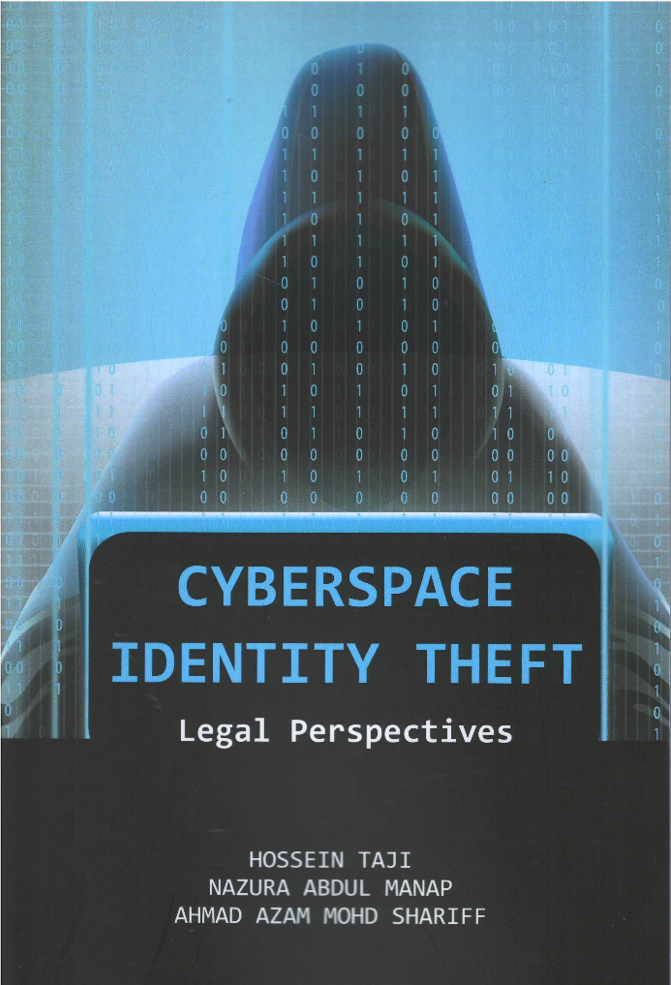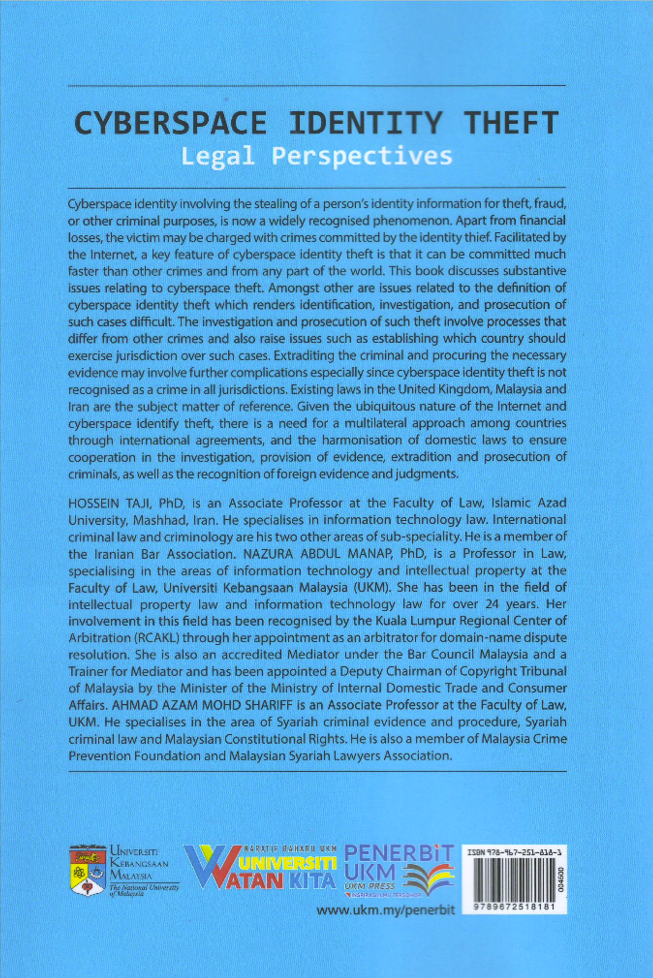Cyberspace Identity Theft Legal Perspective
Author: Hossein Taji, Nazura Abdul Manap, Ahmad Azam
Publisher: UKM Press
ISBN: 9789672518181
Weight: 0.435
Pages: 285pp
Year: 2022
Price: RM45
Cyberspace identity theft, involving the stealing of a person's information for theft, fraud, or other criminal purposes, is becoming an increasingly widespread phenomenon. Apart from financial losses, the victim may be charged with crimes committed by the identity thief. Facilitated by the Internet, a key feature of such theft is that it can be committed much faster than other crimes and from any part of the world Despite its increasing prevalence, there is as yet no precise and comprehensive definition of cyberspace identity theft making it difficult to identify investigate, and prosecute such cases Addressing such theft involves processes that differ from other crimes and also raises issues such as establishing which country should exercise jurisdiction over such cases Extraditing the criminal and procuring the necessary evidence may involve further complications especially since cyberspace identity theft is not recognised as a crime in all jurisdictions
Existing laws in the United Kingdom, Malaysia and Iran are adequate to cope with these issues since they were not originally intended for cyberspace identity theft. Accordingly, the United Kingdom enacted the Computer Misuse Act 1990, Identity Documents Act 2010 (formerly the Identity Card Act 2006), the Theft Act 1968, 1978, and Fraud Act 2006. As far as Malaysia is concerned, the Computer Crimes Act 1997 augments the Malaysian Penal Code that deals with traditional theft offences In the same vein, Iran enacted the Computer Crimes Act 2009, in addition to amending the Islamic Penal Code 1970 through the incorporation of specific offences relating to cybercrimes
This book analyses the meaning of cyberspace identity theft and its various manifestations from legal perspectives as well as related legislative provisions and case laws in the three jurisdictions. It reveals that while the three countries have taken reasonable response measures, they are not effective enough in tackling such criminal acts It argues that given the ubiquitous nature of the Internet and cyberspace identify theft, a multilateral approach among countries is required through international agreements and the harmonisation of domestic laws to ensure cooperation in the investigation, provision of evidence, extradition and prosecution of criminals, as well as the recognition of foreign evidence and judgments.











